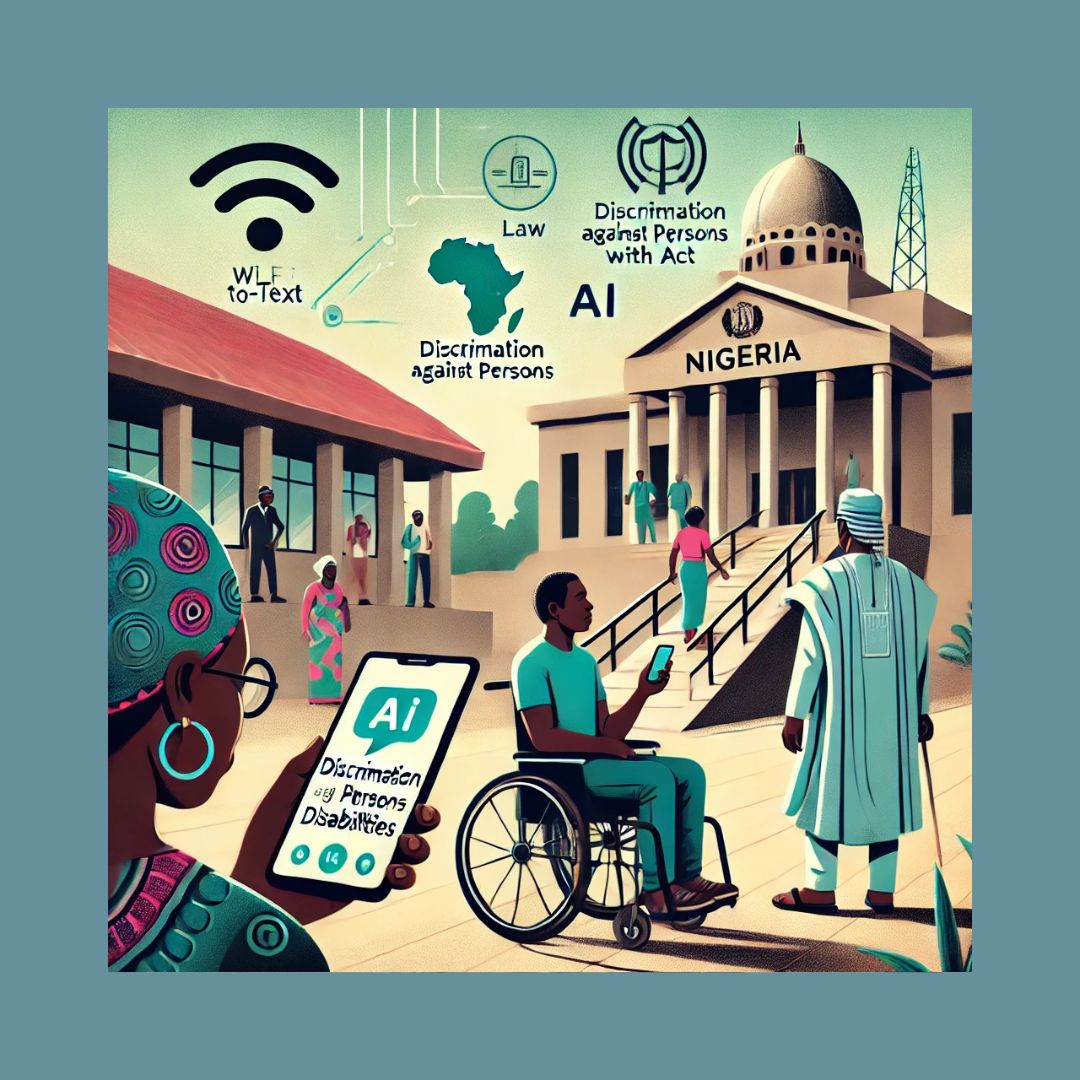The intersection of technology, law, and disability is both a challenge and an opportunity. In Nigeria, where persons with disabilities (PWDs) face systemic barriers, the right blend of innovation and legal enforcement can redefine inclusion. Globally, strides are being made, but the road to equity remains long.
Technology has the potential to empower PWDs, but Nigeria’s digital divide limits access. Assistive technologies like screen readers, hearing aids, and mobility devices are prohibitively expensive for many Nigerians.
Startups like Vinsighte, which developed a reading aid for the visually impaired, show promise. Yet, these innovations remain out of reach for the average Nigerian due to cost and awareness issues. A 2022 report by the Nigeria Association of the Blind revealed that only 20% of visually impaired Nigerians have access to assistive devices.
The Discrimination Against Persons with Disabilities (Prohibition) Act of 2018 criminalizes discrimination and mandates accessibility in public infrastructure. However, implementation lags behind. Most public buildings, including schools and hospitals, remain inaccessible to PWDs.
Global perspective on technology, law and disability
Globally, companies like Microsoft and Google are pioneering inclusive tech. Tools such as Seeing AI and Live Transcribe have transformed lives by providing real-time assistance for vision and hearing impairments. These solutions demonstrate the potential of AI in bridging accessibility gaps.
Laws like the Americans with Disabilities Act (ADA) and the European Union’s Accessibility Act have set standards for inclusivity. These frameworks require tech companies to design products with universal accessibility in mind.
Nigeria can learn from South Africa’s Promotion of Equality and Prevention of Unfair Discrimination Act. This law integrates accessible technology mandates. Such policies ensure that technology serves everyone.
Legal and digital rights for PWDs
The Cybercrime Act of 2015 addresses online fraud but doesn’t account for digital discrimination. PWDs often face barriers when accessing online platforms, from inaccessible websites to unresponsive user interfaces. Advocates like the Centre for Citizens with Disabilities (CCD) call for amendments to include specific protections for PWDs.
However, according to Goodness Ibangah Esq., Nigeria lacks the political will to implement laws. This is particularly so with laws that exclusively protect the rights of persons with disabilities. He identities this as one impediment to their “quality of life, performance and meaningful contribution to the society.” It was not until 2018, Following years of resilient effort by national and international human rights groups and bodies, the National Assembly passed into law
The legal expert says despite the existence of “The Discrimination Against Persons with Disabilities (Prohibition) Act” enacted in 2018, not much has changed. The act provides for the integration of PWDs into the society, prohibits and penalises discrimination against them. It establishes a Commission to take care of their education, health care, social, economic and civil rights. “However, only 9 of the 36 states in Nigeria have domesticated this law and even the celebrated states struggle with implementation, Ibangah observes.
Indeed, implementation of disability laws in Nigeria is inconsistent, especially in rural areas. Ibangah then calls for proactive measures to fulfil government’s obligation under the Convention on the Rights of Persons with Disabilities (CRPD).
Similarly, Tunde Oladipo, another legal mind, notes, “Laws are only as effective as their enforcement. Without accountability, progress remains theoretical.”
Overcoming barriers: Education, cost, and collaboration
A significant number of PWDs lack basic digital skills. Training programs can empower them to leverage technology for independence and employment. Organizations like the Inclusive Tech Network offer workshops to bridge this gap.
High costs of assistive devices are a major barrier. Subsidies and public-private partnerships can make these technologies affordable. The success of Kenya’s “Assist ALL” program, which subsidizes mobility aids, offers a model Nigeria could adopt.
Inclusion is a moral and legal imperative. Governments, tech companies, and civil society must collaborate to ensure PWDs are not left behind in the digital age. As advocacy organizations like the Joint National Association of Persons with Disabilities (JONAPWD) emphasize, “True progress is when no one is excluded.”

Leave feedback about this